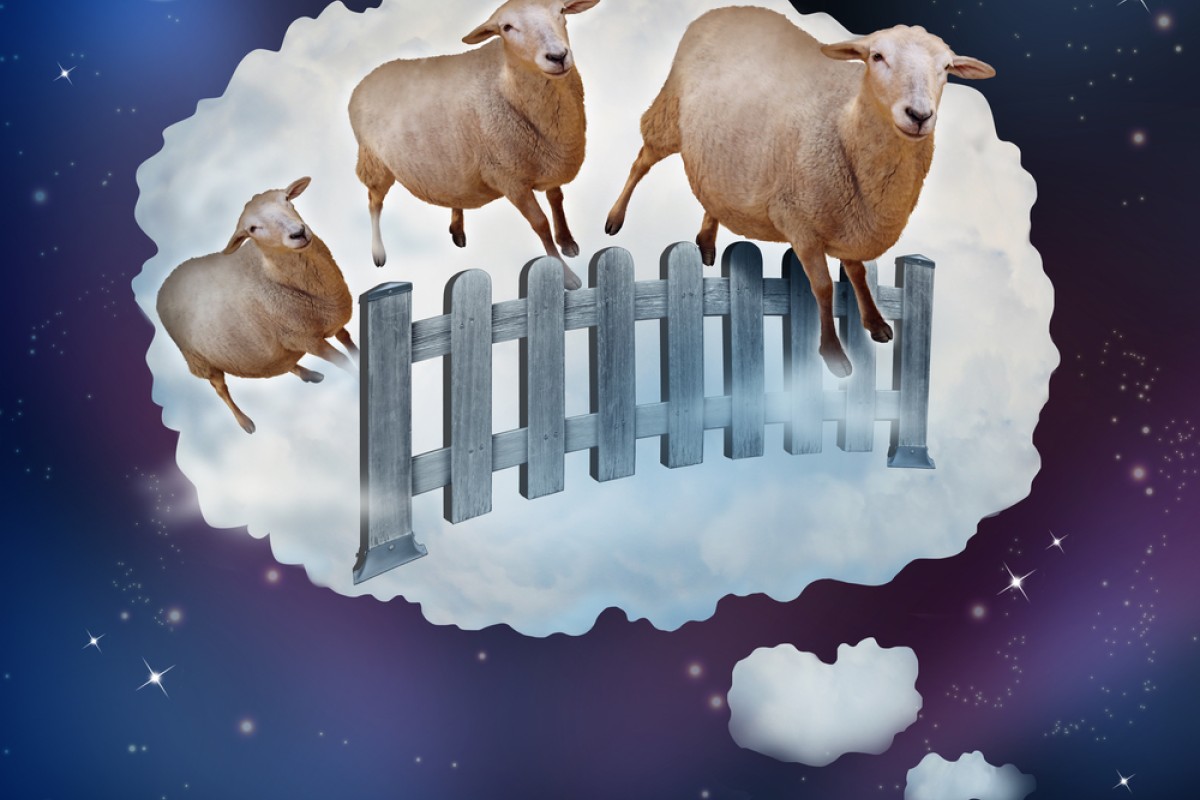
- If counting sheep and drinking milk isn't helping you fall asleep, then it might be worth your while to look at your habits before you get into bed
- Here are a few things you can try to beat insomnia

The clock ticks to midnight, meaning it’s the start of a new day. You’re one of the few people that notices, because while most other people are fast asleep, you’re still battling your eyes that refuse to stay closed and a mind that refuses to quieten. You ask yourself: is this normal?
If this kind of thing happens frequently, you are an insomniac – someone who struggles to fall asleep. Although many teenagers probably suffer from a lack of sleep, how do you know whether you’re actually suffering from insomnia?
Young Post interviewed the vice-president of the Hong Kong Society of Sleep, Dr Joyce Lam, to find out more about this misunderstood disorder.
10 practical tips from our readers to help you fall asleep quickly for a good night's rest
How do you define insomnia?
According to Dr Lam, insomnia can be divided into three main categories – difficulty in maintaining sleep (DIMS); difficulty in initiating sleep (DIS); and early morning awakening. According to a study by the society, more than 10 per cent of Hongkongers suffer from one or more of these three conditions.
“Most patients are diagnosed with the first two types, while the latter one affects mostly elderly people and people with depression,” Lam says. “If the situation happens three or more days a week, and lasts for three months, then it’s very likely you’re suffering from an insomnia disorder.”
Effects
Lam says the effects of insomnia vary between short term and more chronic cases. “For example, you’ll probably be unable to fall asleep if you’re nervous about tomorrow’s exams. This kind of insomnia may cause minor issues like trouble focusing and a bad temper.”
However, she adds that long-term sufferers may have more severe outcomes, such as serious depression and anxiety.
This can lead to bad habits, such as relying on caffeinated drinks to maintain your energy levels during the day. This makes it harder to fall asleep at night; and you may begin to worry about not getting enough sleep, which ironically makes sleep even more difficult.
What is the best cure for lack of sleep?
Myths
There are lots of folk stories and old wives’ tales on how to “cure” insomnia and, while some might be effective, others do more harm than good. For example, napping to compensate for a lack of sleep at night is a common mistake.
“A person who has stayed up for the entire day in most cases has an easier time falling asleep than people who took naps during the day, for the reason that the former has gathered more sleepiness overall,” explains Lam.
Another myth is that drinking milk helps you fall asleep. Although milk does contain amino acids which helps induce sleepiness, Lam says the amount is “not very significant”.
It’s worth trying music and aromatherapy, but there’s no scientific evidence that they work, Lam says. “It’s not for everyone,” she explains. “One person might get annoyed listening to nature’s sounds, while another might sleep well when listening to more raucous drumming noises.”
Expert tips on avoiding painful "text neck"
Preventive measures
While there is no complete cure for insomnia, there are measures that can be taken to prevent it. Bedroom cleanliness and the additional space it provides can have an impact on sleeping quality.
“It’s not like every Hongkonger has a spacious room, but we can work on other things, like turning up the air con temperature and blocking out light and noise disturbances,” Lam says.
Short-term remedies
Dr Lam has several “quick fix” tips that you can use the next time insomnia strikes. The first is to get out of bed. Staying up in bed wondering “When will I doze off?” only makes falling asleep even harder. The key is to stop thinking about sleeping and distract yourself with an activity such as reading or listening to music. This can cause you to relax and fall sleep.
The second tip is to stretch, because stretching helps your muscles relax.
“However, don’t do fierce exercises like running and push-ups,” Lam warns. “Not only will they not help you de-stress, they will get you closer to a ‘wide-awake’ state, taking you even further from sleep.”
Beware of caffeine
Lam advises caffeine consumers to be aware of the amount and the timing. “Caffeine’s effect lasts for four to six hours, so it’s best to drink before noon,” she says. “Also, the amount you drink is important; you can’t expect to drink three cups before noon and still have a caffeine-free night,” she says, adding that coffee and tea addicts should consider decaffeinated versions of their favourite drinks.